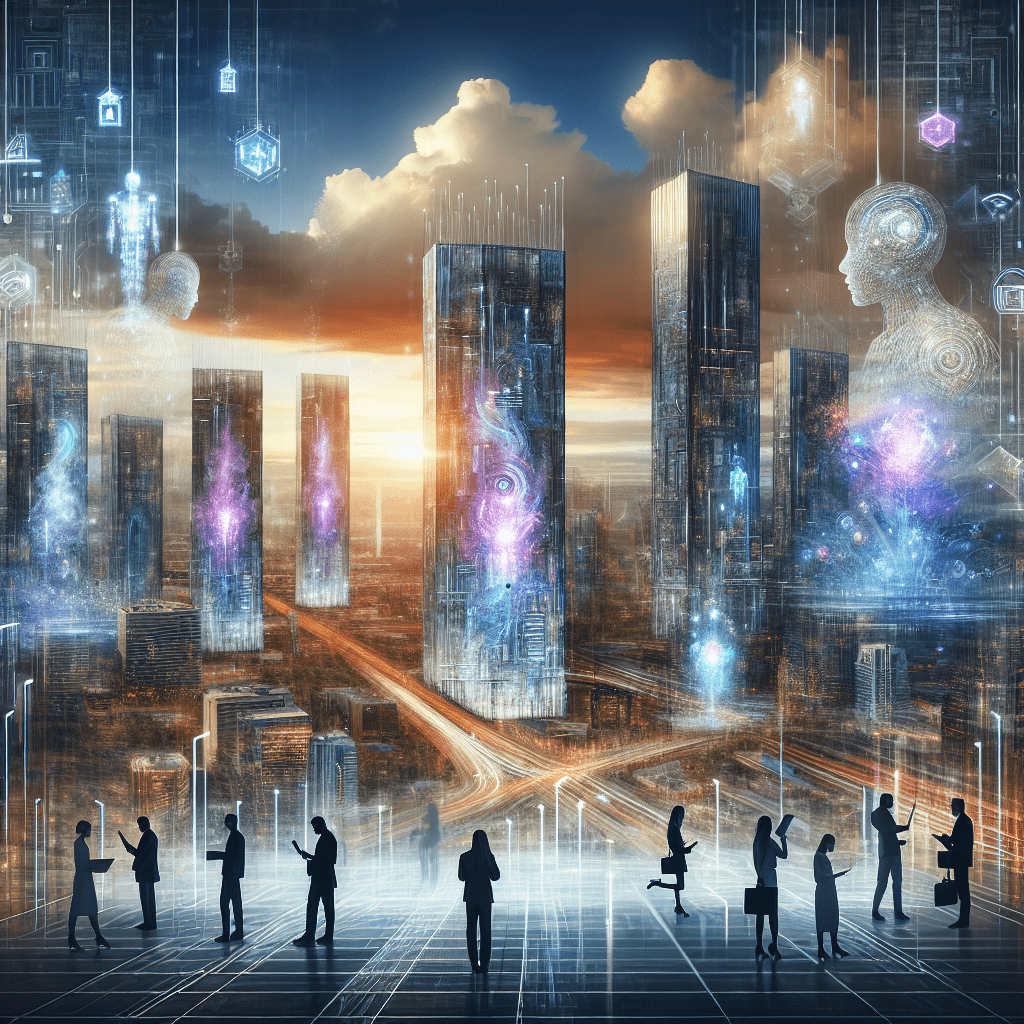In recent years, Artificial Intelligence (AI) has been transforming industries and reshaping the way we work. From automation to data analysis, AI technologies are revolutionizing the job market and creating new opportunities for workers. In this article, we will explore how AI is changing the future of work and what it means for the workforce.
AI in the Workplace
AI is being incorporated into various aspects of the workplace, from customer service to financial analysis. Companies are using AI for tasks such as data entry, customer support, and decision-making processes. This automation is increasing efficiency and reducing the time and resources needed for certain tasks.
Impact on Jobs
While AI brings new opportunities, it also raises concerns about the future of employment. Some fear that AI will replace human workers, leading to job loss and economic uncertainty. However, others argue that AI will create new jobs and transform existing roles, rather than eliminate them altogether.
Some industries are already experiencing the effects of AI on the job market. For example, the retail industry has seen an increase in automated checkout systems, reducing the need for traditional cashiers. Similarly, the healthcare sector is using AI for medical diagnostics, changing the role of doctors and medical professionals.
Future Trends
As AI continues to develop, we can expect to see further changes in the job market. Jobs that require repetitive tasks or manual labor are likely to be automated, while roles that involve creativity, critical thinking, and emotional intelligence will become more valuable.
AI is also likely to create new job opportunities in fields such as data science, machine learning, and AI engineering. These roles will require specialized skills and expertise, opening up new career paths for those interested in technology and innovation.
Challenges and Opportunities
While AI presents challenges for the job market, it also offers opportunities for growth and advancement. By embracing AI technologies, companies can improve productivity, enhance decision-making processes, and create new products and services.
Workers can also benefit from AI by acquiring new skills and adapting to changing job roles. Education and training programs can help individuals prepare for the future of work and stay competitive in a rapidly evolving market.
Conclusion
AI is changing the job market in profound ways, creating both challenges and opportunities for workers and businesses. While AI automation may lead to job displacement in some industries, it also has the potential to create new job roles and foster innovation.
By preparing for the future of work and embracing AI technologies, individuals and organizations can adapt to the changing landscape and thrive in a digital economy.
FAQs
Q: Will AI completely replace human workers?
A: While AI may automate certain tasks, it is unlikely to replace human workers altogether. Instead, AI is more likely to transform existing jobs and create new opportunities for workers.
Q: What skills are needed to work in AI-related fields?
A: Jobs in AI-related fields typically require skills such as programming, data analysis, and critical thinking. Training programs and courses in machine learning, data science, and AI engineering can help individuals develop these skills.
Q: How can workers prepare for the future of work in an AI-driven economy?
A: Workers can prepare for the future of work by acquiring new skills, staying informed about AI technologies, and adapting to changes in their industry. Continuing education and professional development can help individuals stay competitive in a rapidly evolving job market.
Quotes
“The future of work is being shaped by AI technologies, creating new opportunities for workers and transforming industries.” – John Smith
#Future #Work #Changing #Job #Market


